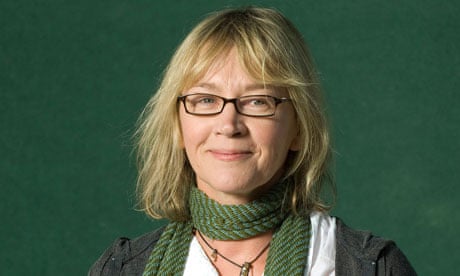Kitty Aldridge was a successful actor with roles in To Play the King and A Room With a View to her name, but she turned to writing in her 30s. Her first novel, Pop, was longlisted for the Orange prize in 2002 and her second, Cryers Hill, followed in 2007. She is married to Dire Straits guitarist Mark Knopfler and has two daughters.
What made you want to set your latest novel, A Trick I Learned from Dead Men, in a funeral home?
I'd recently lost a friend to cancer. Death provokes you to examine what's valuable in life, so it was on my mind. But the challenge was how to make a book about death life-affirming. I researched in a funeral home and I hadn't anticipated what a positive and cheerful place it would be. Once I understood that, I knew how to balance the land of the living and the world of the dead.
Did you see any dead bodies?
I did, but it was not exactly what you would expect. The deceased are like gods in a way. There is something primitively familiar about them. But you adapt quite quickly and all your usual life preoccupations seem absurd in their presence, because you're reminded really clearly that all your family timetables and petty ambitions mean nothing.
The story is told from the point of view of trainee funeral director Lee, whose voice is very distinctive.
Yes, the rhythm of his speech came out in a way that Cape wouldn't normally publish! But I thought, I have to write it this way, otherwise you won't hear him. Nobody else would speak quite like that.
You used material from the book to write a short story, Arrivederci Les, which won the 2011 Bridport prize.
Well, I was writing the novel and I was struggling. It got to a stage where my confidence was at an all-time low. Quite desperate. And I thought I would try it as a 5,000-word short story in order to discover what was important. That helped enormously, because that severity of editing revealed the bones that needed to be there. In fact, Lee's voice arrived during the construction of the short story. I recognised it immediately. Once I got the rhythm of his sentences I knew I had him.
Why did you switch from acting to writing novels?
I got into my 30s and I just felt like a pillock on the telly, really! I stopped feeling challenged by it. I wanted to work with stories but in a different way, and the only other thing that I'd done before – because I'd written and acted in a two-woman play and adapted scripts for people – was writing, so that's what I turned to.
What are you reading at the moment?
I'm just finishing a book called A Room Forever [by Thomas Douglass], which is the life, work and letters of Breece D'J Pancake, an American short story writer, from Virginia, who shot himself aged 26. That was absolutely astonishing for what it revealed about not just the writer but also the writing process. It showed the shadow side of writing, and how depressed he was – that was fascinating.

Comments (…)
Sign in or create your Guardian account to join the discussion